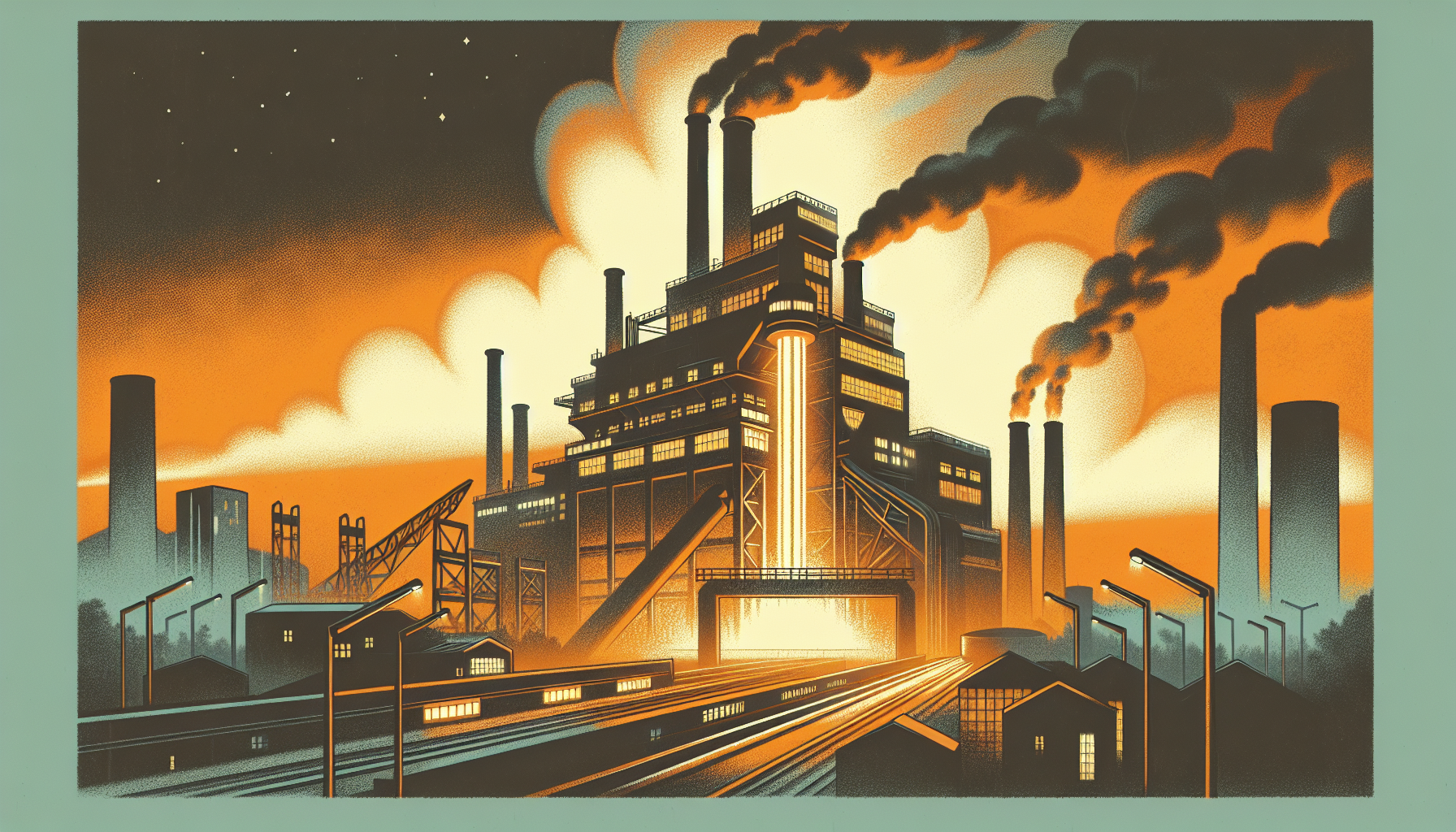Britain’s steelmakers are preparing for heightened trade tensions as the United States plans to increase import tariffs on UK steel to 50% from Wednesday, despite a recent trade agreement aimed at removing such duties.
Tata Steel, the UK’s largest producer, faces potential exclusion from Prime Minister Keir Starmer’s new tariff-free trade deal with the US, sparking urgent discussions between British ministers and their American counterparts. Tata Steel, operating the extensive Port Talbot site in south Wales, is concerned about stringent US origin rules putting its $100 million annual export business at risk.
Prime Minister Starmer stated on Wednesday that the agreement, negotiated with US President Donald Trump last month to lift tariffs on UK steel and aluminium, could be implemented “in just a couple of weeks.” The deal postpones the imposition of new 50% tariffs and maintains the current 25% rate until at least 9 July, but details such as quota sizes and qualifying conditions remain unresolved.
Central to the issue is the “melted and poured” rule for US steel imports, requiring complete manufacture in the country of origin to qualify for tariff exemptions. Tata Steel, transitioning to greener production with electric arc furnaces, has been importing steel from sister companies in India and Europe, potentially contravening US regulations.
According to The Times, UK negotiators are seeking a provision to allow Tata’s steel under the new trade terms. A senior government source expressed confidence in finding a solution, though acknowledged the complexity of the negotiations.
Last year, Tata Steel shut down its traditional blast furnaces at Port Talbot as part of a £1.25 billion plan to decarbonise production, aligning with the UK’s green industrial strategy but complicating exports to markets like the US that enforce strict origin rules.
The US has also expressed concerns about British Steel, owned by Chinese conglomerate Jingye Group, fearing it could allow Chinese steel into the US under a British flag. In response, the UK government used emergency powers in April to temporarily take control of British Steel’s Scunthorpe plant, citing national security concerns.
The urgency of the agreement has intensified amid a global rise in trade protections. The US recently increased steel and aluminium tariffs to 50% for most international partners, putting significant pressure on UK exporters.
Industry leaders have called for prompt action on the trade agreement. Russell Codling, a director at Tata Steel, told MPs that delays have disrupted roughly £150 million in transatlantic business. “If we can get this deal enacted as quickly as possible … it will provide stability for us and our US customers,” he said.
While the UK government is portraying the US-UK Economic Prosperity Deal as a key post-Brexit success, the uncertainty over Tata’s eligibility highlights the complexities of global trade policy, especially when intersecting with industrial strategy, environmental goals, and national security.
Read more:
[Fears grow that Tata Steel could be excluded from Starmer-Trump trade deal](https://bmmagazine.co.uk/news/fears-grow-that-tata-steel-could-be-excluded-from-starmer-trump-trade-deal/)




